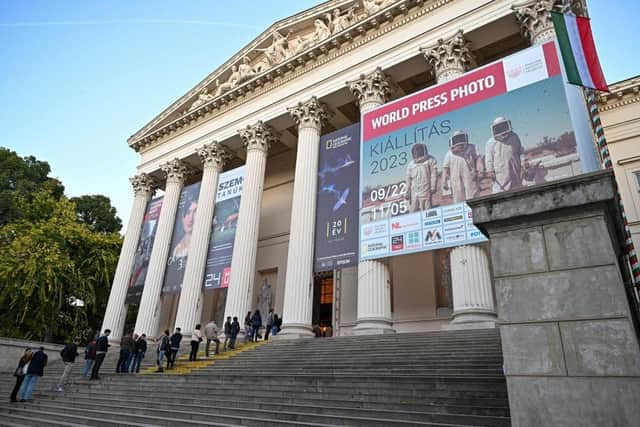World explained: How Hungary is waging a quiet war against LGBTQ+ rights
While devastating conflicts continue to rage in many parts of the world, one European Union country is quietly fighting its own war – against LGBTQ+ rights.
In Hungary this week, Laszlo Simon, the head of one of its major museums, was sacked, for an exhibition showing photographs of people who happened to be gay.
Advertisement
Hide AdAdvertisement
Hide AdThe pictures, part of the World Press Photo Exhibition at the National Museum in Budapest, were not in any way sexually graphic. They portrayed elderly members of the LGBTQ+ community living in a care home in the Philippines. Yet they fell foul of a recent Hungarian law that bans the "display and promotion of homosexuality" in materials “accessible” to under-18s.


When the issue was first raised to the museum, it changed its ticketing policy to prevent young people from entering. However, Mr Simon – himself a former culture minister in the right-wing government of Prime Minister Viktor Orban – was still removed from his post after a far-right law maker demanded a government inquiry under the legislation, which prohibits children from seeing material deemed to promote homosexuality, gay rights or gender change.
It is not the first time someone has fallen foul of the “anti-propaganda” law, nor is it the only legislation adopted by Hungary’s right-wing government to erode LGBTQ+ rights.
This summer, Hungary’s Consumer Protection Authority fined Lira, one of the country’s largest bookshops, 12 million Forints (£28,000) for failing to wrap in plastic foil the popular British graphic novel, Heartstopper, which includes LGBTQ+ themes.
The legislation, introduced in the summer of 2021, singles out and targets content that “promotes or portrays” what it refers to as “divergence from self-identity corresponding to sex at birth, sex change or homosexuality” for individuals under 18.
This comes just months after a political stooshie that saw president Katalin Novak veto a proposed law that would make it possible for people to whistleblow on those who challenge the “constitutionally recognised role of marriage and the family” and those who contest children’s rights “to an identity appropriate to their sex at birth”.
Gay marriage is also illegal in Hungary under the Orban government, while same-sex couples cannot adopt a child. The question is, what has the EU done about it?
European Commission president Ursula von der Leyen has branded the “anti-propaganda” law a “disgrace”, referring it to the EU’s Court of Justice in July 2022 after initially raising concerns a year earlier through a letter of formal notice. A total of 15 EU countries, plus the EC, have joined the legal action, saying the legislation violates the fundamental rights of LGBTQ+ people.
Advertisement
Hide AdAdvertisement
Hide AdYet, a year on and there has been little movement. If the EUCJ finds Hungary to be in breach of EU rules and the country still doesn't rectify the situation, the EC may refer the country back to the court, where a very complicated calculation is carried out to impose a fine.
The timescale of the process is unclear. Mr Orban, who has been in power since 2010, and his views are also not going anywhere, with the next general election in Hungary not due to take place for three years. For the foreseeable future, LGBTQ+ rights in Hungary do not look likely to get any better.
Comments
Want to join the conversation? Please or to comment on this article.
